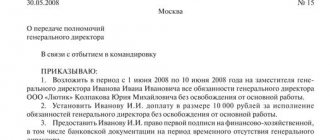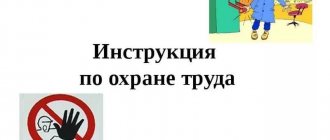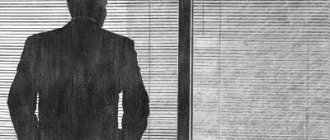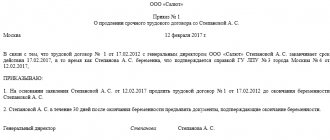Roles of the manager in company management
Management is a set of management methods in market conditions. Management includes planning, organization, control and motivation systems, which are necessary in order to achieve set goals.
Simply put, management is organizing, planning, controlling, and motivating employees.
The boss and his role
A leader is a person who has certain powers. He makes important decisions and controls their implementation. There are ten roles that a manager performs in the course of his activities.
In general, all managerial roles are divided into three groups:
- The interpersonal role of the leader. The boss recruits, trains and trains staff, and forms their motivation. He also serves as a liaison between employees.
- Information role of the leader. The manager constantly receives, processes information and uses it for the purposes of his enterprise.
- He also distributes all necessary information among the staff. This role also includes a representative function - transferring information about the enterprise to external contacts.
- Making decisions. This is the most important and responsible role of a leader. Following it, he takes various steps, constantly improving the activities of his organization.
He is also assigned the role of a person who eliminates all errors in the activities of the enterprise, and the role of a representative in contacts with other organizations.
When is it necessary?
Typically, such a specialist is needed in an enterprise where the staff number is measured in tens or hundreds of people , and the accounting department itself processes a large amount of information and needs to ensure that all responsibilities are clearly divided between employees.
The management of the enterprise has the right to independently grade the positions of everyone who is subordinate to the chief accountant: they can be leading, senior or junior specialists.
The division of job descriptions allows you to simplify and optimize work, entrust less important, but more numerous issues to junior specialists, and assign more responsible responsibilities to the leader , making him a link between the rest of the junior specialists and the head of the accounting department at the enterprise.
Sample job description for a leading accountant.
Levels of management activity
Large enterprises require a large amount of management work. Therefore, management activities at such enterprises are divided horizontally and vertically.
Horizontal division involves placing superiors over individual departments. Vertical is a hierarchy of management levels in an enterprise.
At the same time, all managers are divided into three categories:
Operations managers are the lowest level of a company's management team. They are assigned the function of controlling the production process and the use of necessary resources. This category includes the manager. laboratory, workshop foreman, etc.
Middle managers supervise the work of operational managers. They pass all the information received up to senior managers. This is the manager. department, dean, etc. The position of a mid-level manager already implies serious responsibility.
Senior management. This category is the smallest. She is responsible for all activities of the organization and the results obtained. Senior managers make or approve all vital decisions in the company's activities.
This type of leader includes the president, chairman of the board of directors, and minister. The work of senior management involves great responsibility, large volumes, and intense pace. Managers at this level constantly make important management decisions.
Functions
At each enterprise, the functions of the leading accountant differ , since management approves them in the job description. In addition, the right to assign new functional responsibilities to a leading specialist .
In general, the activities of a leading accountant can be reduced to the following functions:
- maintain tax accounting , prepare reporting and statistical documents for regulatory organizations, auditors and senior management of the enterprise;
- engage in tax planning, optimize document flow , make efforts to ensure that the latest tools and technologies are used in enterprise accounting;
- take inventory of funds , commodity and material assets, settlements and payment obligations of the enterprise, participate in audit and control activities;
- control the timeliness of the transfer of taxes and fees to the budget, the correctness of calculations, and exercise economic control ;
- monitor changes in tax legislation, summarize incoming information and timely take the necessary measures to change and update accounting policies at the enterprise, report key information to the chief accountant and director;
- accept and process documents for calculating employee salaries;
- develop working charts of accounts and other primary documents for the economic operations of the enterprise, if standard plans and forms are not provided or if the documents are intended for internal use;
- ensure that accounting employees maintain discipline , timely prepare and submit reporting documents to tax organizations, and monitor the safety of documentation before it is archived;
- take into account the execution of estimate documents for expenditures of funds in accounting registers, including with the use of information systems that are available at the enterprise;
- formulate the optimal accounting policy of the enterprise within the framework of the taxation system used, so that discipline is maintained at the maximum level and resources are used rationally ;
- The leading accountant endorses and approves documentation within the limits of professional competence ;
- has the right to demand that employees of the accounting department comply with labor discipline , make comments and report to the chief accountant about identified violations;
- has the right to promptly receive from the chief accountant and director all documentation that is necessary to perform official duties ;
- has the right to contact the chief accountant for clarifications and clarifications, guidelines and necessary information on key issues related to the performance of official duties;
- can improve qualifications and undergo vocational training if this does not harm the interests of the enterprise;
- is empowered to propose to the management of the enterprise for consideration, including working as part of an expert group , options for improving accounting and optimizing financial and economic activities;
- has the right to request information about projects and plans of the enterprise management directly related to accounting and taxation;
- when communicating with representatives of other departments, he has the right to represent the interests of the accounting department , and when communicating with other organizations, including regulatory ones, the interests of the enterprise.
The reader may need information about the job descriptions of a payroll accountant, materials accountant, human resources accountant, payroll accountant, cashier accountant and accountant assistant.
Description and characteristics of the profession
Creative director is the creator of a unique project concept, corporate identity, and impressive images that promote product promotion. A person who chooses this profession must be inventive, think outside the box, have creative courage, developed imagination and excellent taste.
- His goal is to find the best way to present the company and its products.
- His job is to search for new, original moves in shaping public opinion and stimulating demand for a product or service.
- The task of the creative director is to understand the customer’s expectations and attract the attention of the target audience, harmoniously combining the creative and marketing components.
He must create a salable idea and correctly convey it to the team of designers, copywriters, art directors, programmers, designers, decorators, and artists subordinate to him for its development and implementation. The creative director is responsible for the results of teamwork and for the prestige of the company as a whole.
Modernity places strict demands on the profession of a creative director. He must be on the wave of trends and technologies, introduce new models of communication with consumers, and be ready to instantly change the concept and means for its implementation. The creative director must know Adobe Photoshop and Illustrator programs, be able to write scripts for commercials, come up with slogans, and make layouts. Most likely, he will not personally perform all this, but having an understanding of how it works is mandatory for this position.
Types, types and classification of business meetings
Business meetings can vary in form, topic and persons present.
Their main classification is presented below:
- by belonging to a specific area: administrative meetings (to resolve problematic issues), scientific (conferences, symposiums, seminars organized and conducted to resolve current issues in the scientific field), political (congresses and meetings of members of certain political movements) and mixed types;
- by scale and number of participants: international (with the involvement of foreign partners, specialists, experts in a certain field), national, regional, city;
- at the location of the event: offsite and local meetings;
- according to the regularity of holding: periodic, permanent meetings.
In addition to the presented classification, meetings can be divided into problem-based, operational and instructive.
Problem meetings are aimed at finding optimal solutions to problems in a short time.
Operational (or they are also called control rooms) are aimed at obtaining data on the current situation of the company. All information from subordinates is accumulated by department heads and then transferred to the chief executive of the organization. This is data on the extent to which plans were implemented, goals were achieved, and tasks were solved. The main difference between such meetings and all others is their regularity, the constancy of the list of participants and the possible absence of a meeting agenda (that is, its detailed plan).
Instructional meetings have the reverse order in contrast to control rooms - all information in a directive format goes down from the manager to direct subordinates, and is then transmitted along the vertical power structure in the organization to specific performers of certain tasks. Such information includes management orders that may affect the current progress of the organization, new rules, norms of behavior, and deadlines for completing specific tasks.
Rights
The leading accountant has the following rights :
- the leading accountant endorses and approves documentation within the limits of professional competence;
- has the right to demand that employees of the accounting department comply with labor discipline , make comments and report to the chief accountant about established violations;
- has the right to promptly receive from the chief accountant and director all documentation that is necessary to perform official duties ;
- has the right to contact the chief accountant for clarifications and clarifications, guidelines and necessary information on key issues related to the performance of official duties;
- can improve qualifications and undergo vocational training if this does not harm the interests of the enterprise;
- is empowered to propose to the management of the enterprise for consideration, including working as part of an expert group , options for improving accounting and optimizing financial and economic activities;
- has the right to request information about projects and plans of the enterprise management directly related to accounting and taxation ;
- when communicating with representatives of other departments, he has the right to represent the interests of the accounting department , and when communicating with other organizations, including regulatory ones, the interests of the enterprise.
Preparation, organization and holding of business meetings
In order for the meeting to be effective, it is necessary to carefully consider its main points: the purpose of the meeting, the main tasks, the stages of the event. Only under such conditions can you benefit from the meeting.
Unfortunately, many of them are carried out only because it is customary in the business environment. Regular meetings and meetings at the beginning of the week with management in many companies have become commonplace and lost their meaning.
However, large companies that strive to develop and win large market shares approach this issue with great scrupulousness:
- the list of meeting participants is determined;
- its agenda is developed for a long period, to which adjustments are made over time;
- priority remains given to strategic objectives, on which department heads report.
Distinguishing the concepts of “functions” and “tools” of the financial director
Is investment appraisal, for example, a finder's function? No, this is just a way to achieve one specific goal or, in other words, a tool. Mastery of financial instruments is secondary compared to the ability to effectively perform one’s functions. If a specialist owns many financial instruments, but does not understand the global goals of the company, then it will be difficult for him to achieve success.
Differences in the concepts of “function” and “tool”
| Function | Tool |
| Goal-oriented Includes a whole range of skills To achieve it, a set of tasks is formed | Is a way to achieve a goal Includes one separate skill Solves one specific problem |
| Example: Providing the company with the necessary finances | Example: Budgetary control |
Where do they teach professions?
A person with higher education and knowledge in the field of management, design, aesthetics, ethics, psychology, and advertising can apply for the position of creative director. The profession of a creator in the Russian Federation cannot be obtained in any educational institution.
Basic knowledge, which will subsequently need to be developed and supplemented, is given during training in the following specialties:
- creative management;
- arts and humanities;
- applied philology;
- management of marketing and social communications;
- philological management and advertising;
- advertising;
- content management;
- producing;
- media communications in social systems;
- cinema and media.
For admission to budget places, the average passing score ranges from 50 to 85, for paid places - from 32 to 70. Passing scores for various programs are approximately the following:
- Russian language – 40–70;
- literature – 45–68;
- history – 40–65;
- foreign language – 65;
- social studies – 43–50.
A creative director needs to have a broad outlook, developed creativity, know several languages, and be ready to monitor innovative trends in the field of PR, advertising and media.
Mandatory part (beginning)
The point is that the documents being studied are written according to a certain algorithm. There are no hard and fast rules in this regard, but it is advisable to follow generally accepted norms. At the very beginning, the document is somewhat reminiscent of an autobiography.
Free legal consultation We will answer your question in 5 minutes!
Ask a Question
Free legal consultation
We will answer your question in 5 minutes!
Ask a Question
After all, you have to write:
- Full name of the manager in question;
- date of birth;
- marital status (optional);
- the place where the reference will be submitted (optional);
- education with a list of all educational institutions completed.
This is also important to know:
Investigation of industrial accidents: which accidents are subject to investigation and recording
This is where you should start. The beginning of all characteristics is usually the same. But the remaining information is indicated individually. But there are still some similarities. And for all managers. What similarities can be found in the documents being studied?
Characteristics of the head of the organization - features
If you need a reference for a manager at your place of work, a sample is drawn up in free form.
However, it always includes the following information:
- Title of the document;
- personal information of the director;
- description of work activity and achievements;
- listing personal and business qualities;
- conclusion.
All information must be reliable and objective.
The character reference is signed by an authorized person - an employee of the human resources department, the founder or director, if the document is drawn up in relation to a lower-level manager.
What core competencies are required for a CFO?
To successfully cope with his responsibilities, a CFO must have a set of professional competencies in 2 areas: financial and managerial. They are closely interconnected, so for professional growth you will have to constantly improve and develop new competencies in both areas.
With the advent of new functions, the set of necessary competencies for a financial director is regularly updated. A modern finder first of all needs to focus on developing strategic thinking, studying IFRS and understanding the principles of building a risk management system.
What are the main functions assigned to the financial director?
Management expects a lot from the financial director and needs not only his professional knowledge and skills. Business owners want the CFO to become a reliable partner and initiator of change in the company.
To determine the key functions of the financial director, it is necessary to identify the company’s development goals for the longest possible period. Since the CFO belongs to the management team and can influence a lot in the company, his tasks are global: effective resource management, optimization of business processes and maintaining the financial stability of the company.
If you move away from official formulations and special terms, you can create a list of priority functions of the financial director that is as close as possible to practical activities.
The functionality of the financial director increasingly goes beyond accounting and reporting. The range of his responsibilities is expanding due to his involvement in the tasks of the legal service, HR projects, marketing and IT. Now a CFO is a strategist whose main task is to increase the value of the company, increase its profits and investment attractiveness. Without it, not a single important decision is made in the company.
Job responsibilities of the Quality Director
The employment contract with the quality director reflects the general job functions that the employee must perform, but they are specified in the job responsibilities section of the job description. Thus, his responsibilities include:
- organization of work to control the quality of products manufactured by the enterprise;
- organizing testing of manufactured products for compliance with standards and specifications;
- development and implementation of measures to improve product quality in accordance with the current level of technology development and market needs;
- organizing inspection of raw materials and resources supplied to the enterprise;
- organizing the preparation of products for state certification or certification;
- participation in the development of a nomenclature of measured parameters and measurement standards;
- organizing random checks on individual production lines without prior warning to those responsible for the production of products;
- ensuring the preparation of documents certifying product quality;
- preparation of complaints to suppliers who supplied raw materials of inadequate quality;
- management of work to study the causes of defects and defects in products, as well as the development of recommendations for their elimination;
- reporting;
- management of employees of subordinate departments.
This list can be changed depending on what tasks are actually assigned to the quality director.
Characteristics of a leader - example
We offer you a sample job description for a department head. The document is drawn up on the organization's letterhead. After the main part there is a date and signature.
Characteristic
Polevanov Kirill Viktorovich born September 15, 1980, has been the head of a department at Vostok-R LLC since November 2013. In 2005, he graduated from the Moscow Aviation Institute with a degree in Engineering.
In the course of his work activity Polevanov K.V. is obliged to manage the work of the department, organize production activities, competently select personnel for existing types of work, and monitor the work of subordinate employees.
For the entire time he worked as head of the department, Polevanov K.V. has established himself as a competent leader, excellent organizer and proactive employee. He is demanding of himself, colleagues and subordinates. The department entrusted to him successfully copes with the assigned production tasks.
Working as the head of the department, Polevanov K.V. has never been subject to disciplinary action. In his relationships with colleagues and subordinates, he is restrained, fair, and tactful. Polevanov K.V. enjoys authority and knows how to listen to the opinions of others.
Polevanov K.V. fully corresponds to the position held. He is distinguished by responsibility and the ability to make independent decisions.
This specification has been issued for delivery at the place of request.
What is the essence of the work of a financial director?
There are many stories of brilliant CFOs who make a tangible contribution to the development of the company. They managed to gather around them a team of competent specialists who cope with the tasks. Such finders act as indispensable members of the strategic planning group, have their own independent position and effectively manage internal control and risk management systems at the enterprise. At the same time, they devote enough time to communicating with management, colleagues, and external stakeholders who also influence the life of the company.












